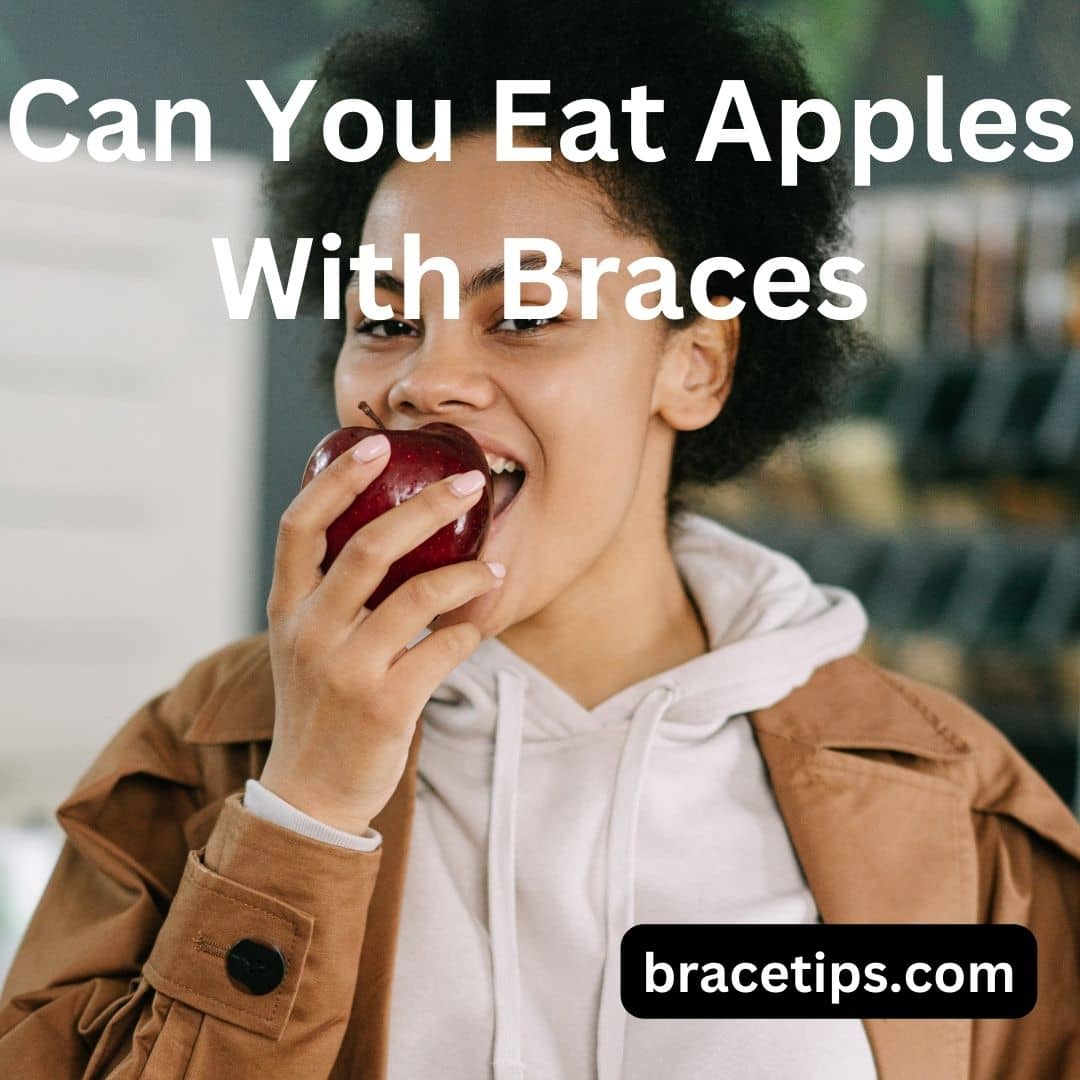Can You Eat Apples With Braces
Braces symbolize a journey towards a perfect smile, but they often come with dietary restrictions. Apples, while a nutritious and delicious snack, pose a challenge due to their firm texture. However, with the right approach, enjoying apples with braces is possible. Let’s delve precautions, and alternatives that make it feasible to indulge in this beloved fruit while wearing braces. Braces are orthodontic devices designed to correct dental misalignments. Can you eat apples with braces that is no problem your teeth. Among the many concerns, the prospect of enjoying apples with braces can be daunting. However, with the right approach and knowledge, it’s possible to savor this nutritious fruit without compromising your orthodontic treatment. Apples, with their crunchy texture and natural sweetness, are a common concern for those with braces. Can you indulge in this healthy fruit without causing damage or discomfort to your orthodontic work? Let’s delve into the details.
Eating Apples The Right Way With Braces
When faced with the question of whether you can eat apples with braces, the answer is yes—with a caveat. Apples’ crunchiness and hardness can potentially damage braces or cause discomfort while eating. However, by adopting specific techniques and precautions, it’s feasible to safely consume apples without compromising your orthodontic treatment. Maintaining dental hygiene and following orthodontist guidelines are crucial while wearing braces. Apples, known for their crispness and health benefits, pose a challenge due to their hardness. Yet, various strategies allow you to indulge in apples without causing harm to your braces.
What to Know When Eating Apples with Braces
Before diving into your favorite fruit, understanding the impact of apples on braces is essential. While apples contain vitamins and fibers beneficial for health, their hardness can potentially damage braces, brackets, or wires if not consumed cautiously.
Take Care When Eating Apples With Braces
The foremost concern while eating apples with braces is the risk of damaging the wires or brackets. Biting directly into a whole apple can exert too much pressure on the braces, leading to loosened wires or even breakage. The MECE (Mutually Exclusive, Collectively Exhaustive) principle underscores the importance of carefulness while eating apples with braces. Slicing apples into smaller, bite-sized pieces or opting for softer apple varieties are two key approaches that ensure you can relish them without causing harm to your orthodontic appliances.
Alternative Options for Eating Apples with Braces
Exploring alternative ways to enjoy apples while wearing braces is a smart approach. Applesauce, apple juice, or steamed apples can serve as suitable alternatives, providing similar flavors and nutrients without the potential risk of damaging braces.
Understanding Braces and Dietary Restrictions
Braces serve the purpose of aligning teeth, correcting bites, and enhancing oral health. They consist of brackets, wires, and bands that work together to gradually shift teeth into their proper positions. However, certain foods can potentially damage or dislodge these components, leading to setbacks in treatment progress.
Apples and Braces
Apples, revered for their nutritional benefits, present a dilemma for individuals wearing braces. The firm, crispy texture coupled with their juicy flesh can pose a challenge when it comes to biting and chewing, raising concerns about their compatibility with braces.
Can You Safely Eat Apples With Braces?
Evaluating the Risks
Bracket Damage
The main concern with consuming apples lies in the risk of damaging the brackets. Biting into a crisp apple could exert considerable pressure on the braces, potentially causing brackets to break or detach from the teeth.
Wire Displacement
Additionally, the force required to bite into an apple might lead to wire displacement. The wire, crucial for the alignment process, may shift or bend, requiring an unscheduled visit to the orthodontist for adjustments.
Strategies for Apple Consumption
Slicing Techniques
One approach to enjoy apples while wearing braces is by slicing them into smaller, bite-sized pieces. This method reduces the pressure exerted on the braces, making it safer to consume without risking damage.
Softening Methods
Another alternative involves softening the apples by cooking or steaming them. This process decreases their hardness, making them easier to chew and gentler on braces.
A Word of Caution
While these methods mitigate risks, caution remains crucial. Even with sliced or softened apples, it’s essential to consume them mindfully, avoiding direct biting into the fruit to prevent unnecessary strain on the braces.
Safe Consumption Techniques
How to Eat Apples with Braces
Guidelines for eating apples with braces revolve around minimizing the impact on orthodontic appliances. Cutting apples into small pieces, avoiding biting directly into the fruit, and chewing cautiously are essential practices to prevent damage while still relishing the taste and nutrition.
- Slice Them: Cutting apples into smaller, bite-sized pieces reduces the stress on your braces. Use a knife to slice them into manageable portions, making them easier to chew without straining the braces.
- Softening Techniques: Steaming or baking apples can make them softer, making them gentler on your braces. Softened apples retain their nutritional value while being easier to eat.
- Avoid Direct Biting: Refrain from biting directly into the apple, especially if it’s whole. Doing so can apply excessive force on the braces and potentially cause damage.
When Apples Meet Braces
Understanding the interplay between apples and braces is vital. While apples are nutritious and offer health benefits, their hardness can potentially damage braces, leading to discomfort or adjustments needed during orthodontic treatment.
Alternative Options and Serving Tips
Alternative Options for Eating Apples with Braces
- Apple Sauce: A convenient and braces-friendly alternative to whole apples, applesauce provides the same nutritional benefits without the risk of damaging braces.
- Smoothies: Blending apples into a smoothie with other fruits or yogurt offers a delicious and braces-safe way to consume this fruit.
How To Serve Apples If Your Teen Has Braces?
For teenagers with braces, introducing softer variations of apples, such as sliced apples or applesauce, ensures they can enjoy this nutritious fruit without compromising their orthodontic treatment. Parents of teens with braces might wonder about the best ways to serve apples. Encouraging safe apple consumption by cutting them into manageable pieces or providing softer alternatives ensures your teen can enjoy this fruit without compromising their orthodontic treatment.
Do Apples Cause Pain To Someone Wearing Braces?
While eating apples with braces might not cause direct pain, biting into hard apples can exert pressure on braces, leading to discomfort or damage. Adhering to safer consumption methods minimizes the risk of experiencing pain or discomfort.
Can You Bite Into an Apple With Braces?
Biting directly into an apple with braces is not advisable due to the risk of damaging orthodontic appliances. Instead, slicing apples into smaller, manageable pieces or opting for softer varieties is recommended.
FAQ Section
Q: Can I eat apples if I have braces?
A: Yes, you can eat apples with braces by slicing them into smaller, bite-sized pieces or choosing softer apple varieties.
Q: Will biting into an apple cause damage to my braces?
A: Biting directly into an apple with braces can potentially damage orthodontic appliances. It’s safer to cut apples into smaller pieces to prevent any harm.
Q: How can I enjoy apples without risking damage to my braces?
A: To enjoy apples safely with braces, consider cutting them into smaller pieces, avoiding biting directly into the fruit, and opting for softer apple varieties or alternative preparations like applesauce.
Q: Do apples cause pain to someone wearing braces?
A: While eating apples with braces might not directly cause pain, biting into hard apples can exert pressure on braces, leading to discomfort. It’s advisable to consume them cautiously.
Q: Are there alternative options to eating whole apples with braces?
A: Yes, alternatives like applesauce, apple juice, or steamed apples offer similar flavors and nutrients without the risk of damaging braces, making them suitable options for those with braces.
Q: Do Apples Cause Pain To Someone Wearing Braces?
A: It’s not the apples themselves that cause pain; rather, it’s the pressure exerted on the braces while biting into them. Slicing apples into smaller pieces or opting for softer variations significantly reduces the discomfort associated with eating apples with braces.
Q: Can You Bite Into an Apple with Braces?
A: While it’s possible, it’s not advisable to bite directly into a whole apple when wearing braces. The force exerted while biting can harm the braces, leading to inconvenience and potential damage.
Q: Will eating apples with braces cause pain?
A: The pressure exerted while biting into apples might cause discomfort or soreness. Opting for softer or sliced apples can minimize this discomfort.
Q: Can eating apples damage braces irreparably?
A: While eating apples carries a risk of damaging braces, being mindful of how you consume them can significantly reduce this risk.
Q: Are there other crunchy foods that should be avoided with braces?
A: Yes, other hard or crunchy foods like nuts, popcorn, and raw vegetables should also be consumed cautiously or avoided to prevent damage to braces.
Conclusion
The joy of biting into a crisp apple doesn’t have to be sacrificed during orthodontic treatment. By employing careful techniques like slicing, individuals with braces can savor the taste and nutritional benefits of apples while ensuring the safety of their orthodontic appliances. Remember, it’s about adapting and finding creative ways to enjoy your favorite fruits without jeopardizing your dental journey. Enjoying apples with braces requires mindfulness and adopting alternative consumption methods to prevent any potential damage to orthodontic appliances. By following these tips and being cautious, individuals wearing braces can still relish the taste and benefits of apples without compromising their orthodontic treatment. Apples, with their nutritional richness, can be enjoyed by individuals with braces with careful consideration and the application of safer consumption techniques. Slicing or softening apples can help mitigate the risks associated with their firm texture, allowing for a flavorful and healthy snack without compromising orthodontic treatment.

